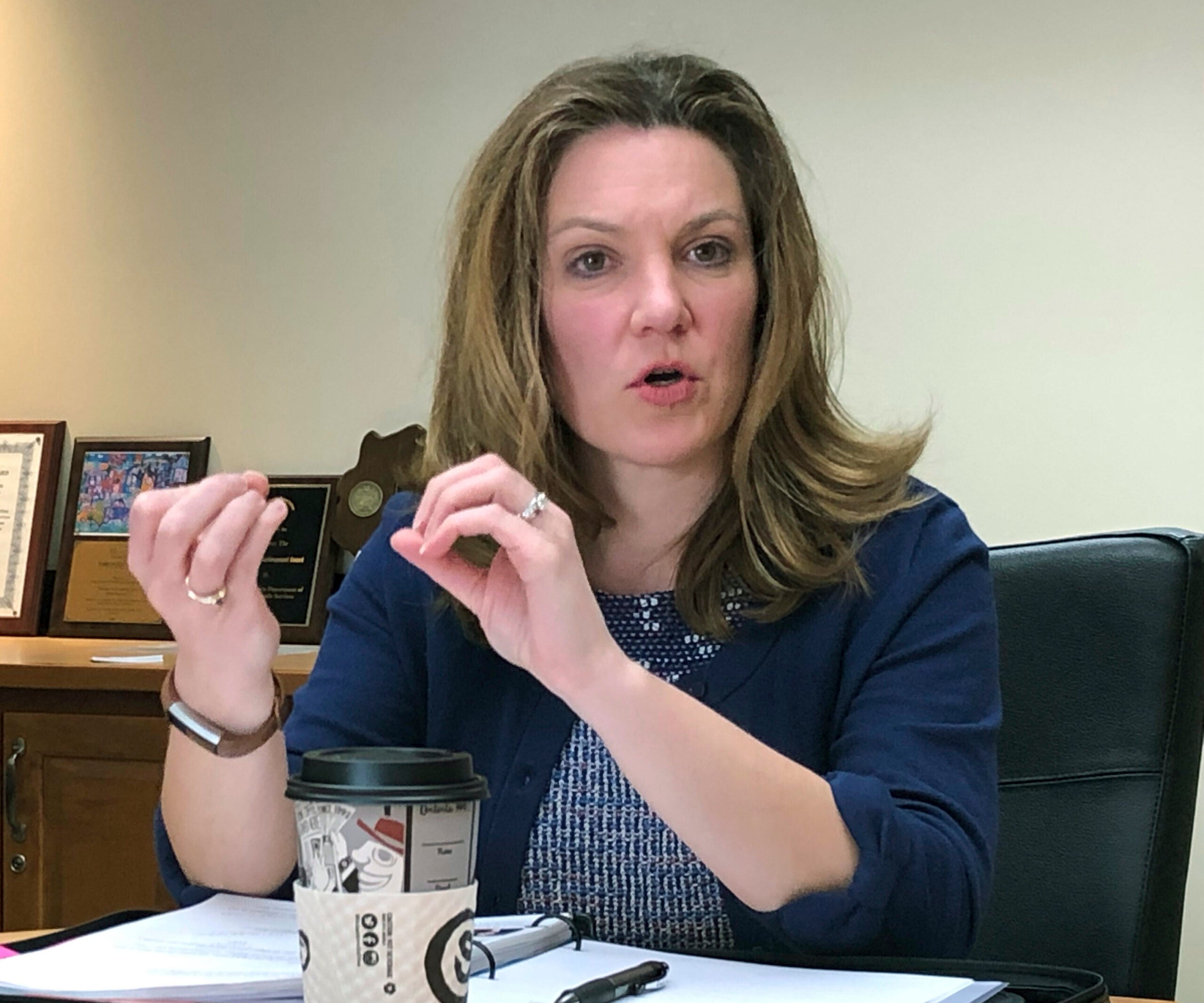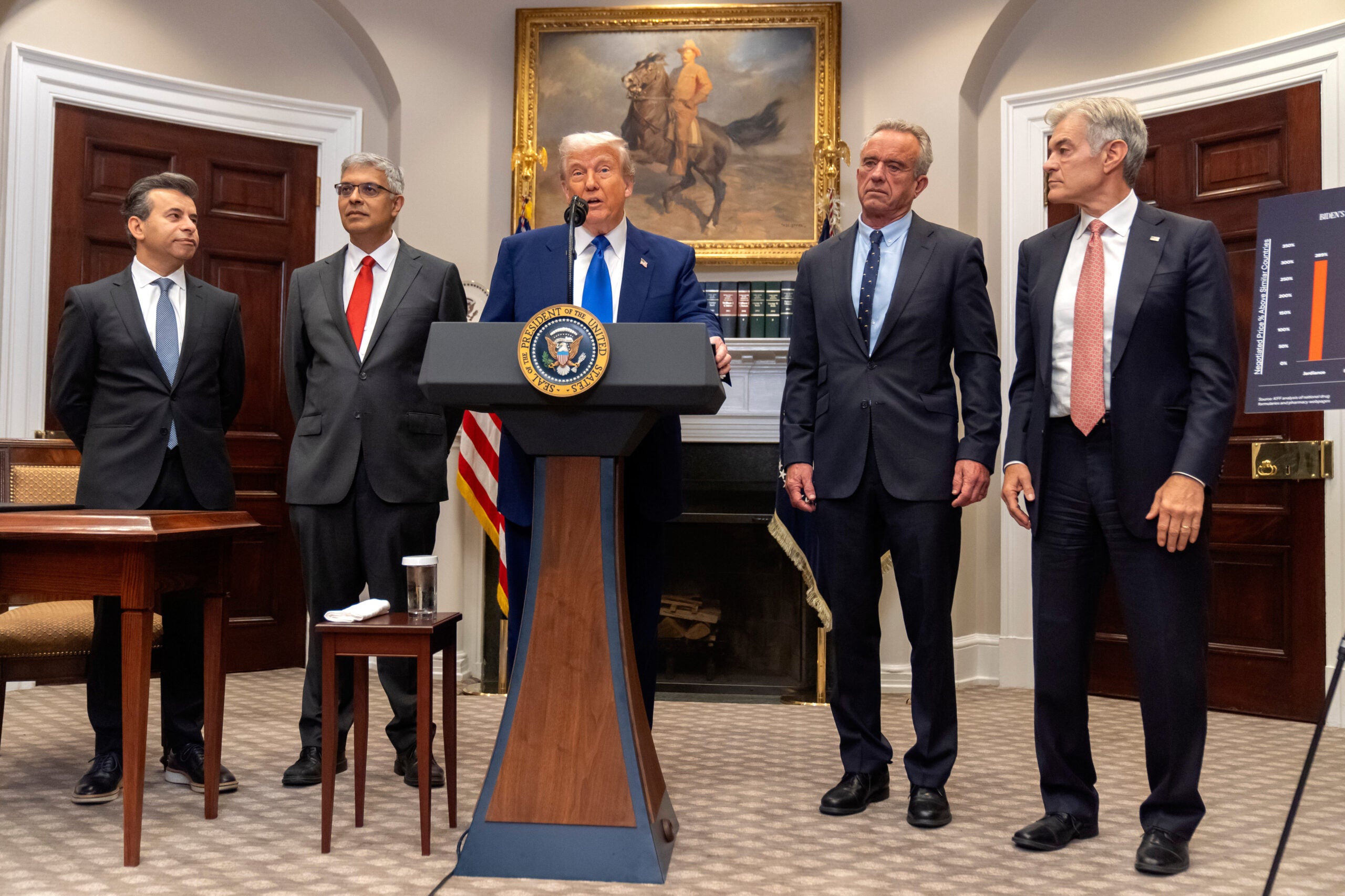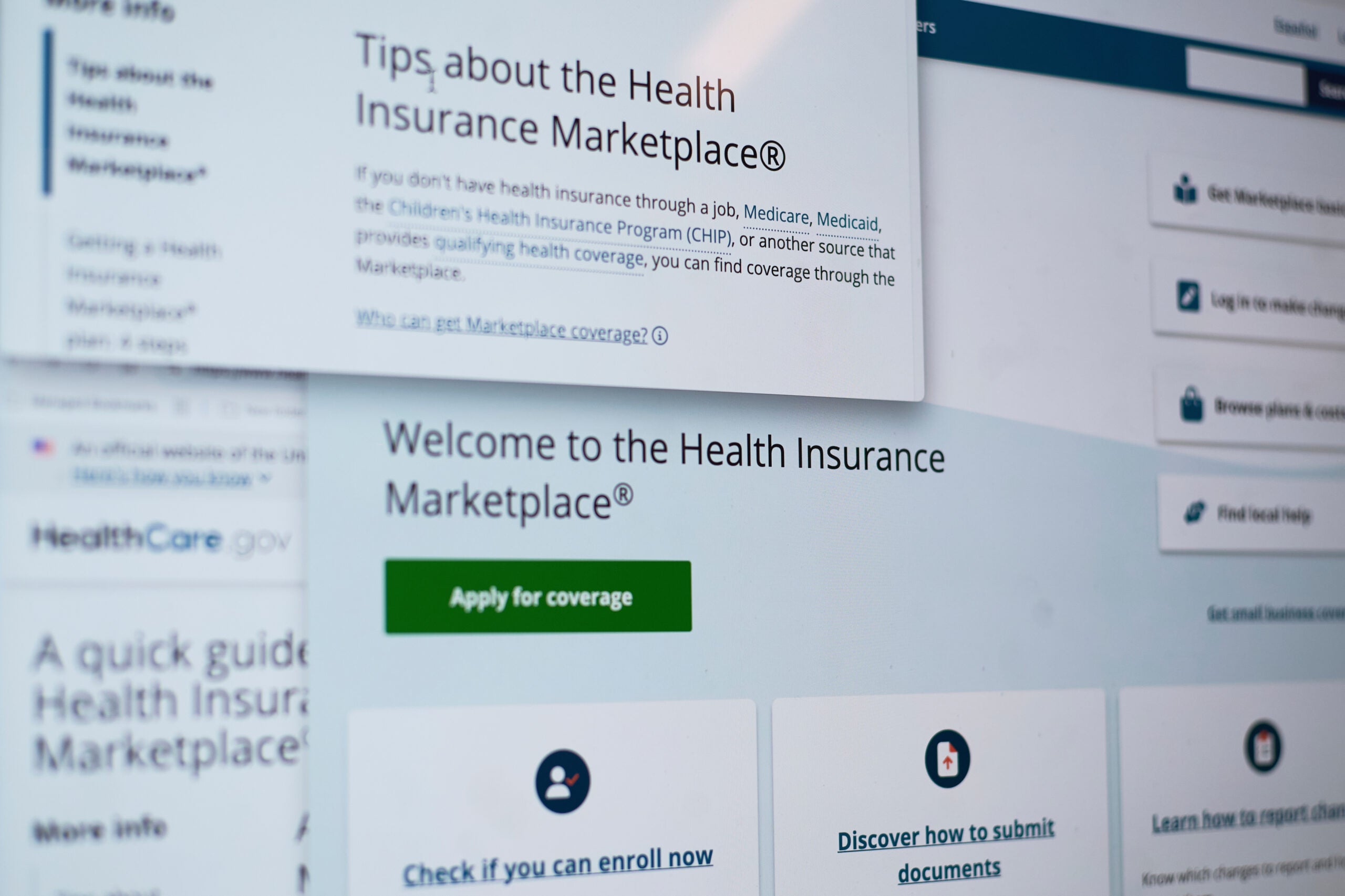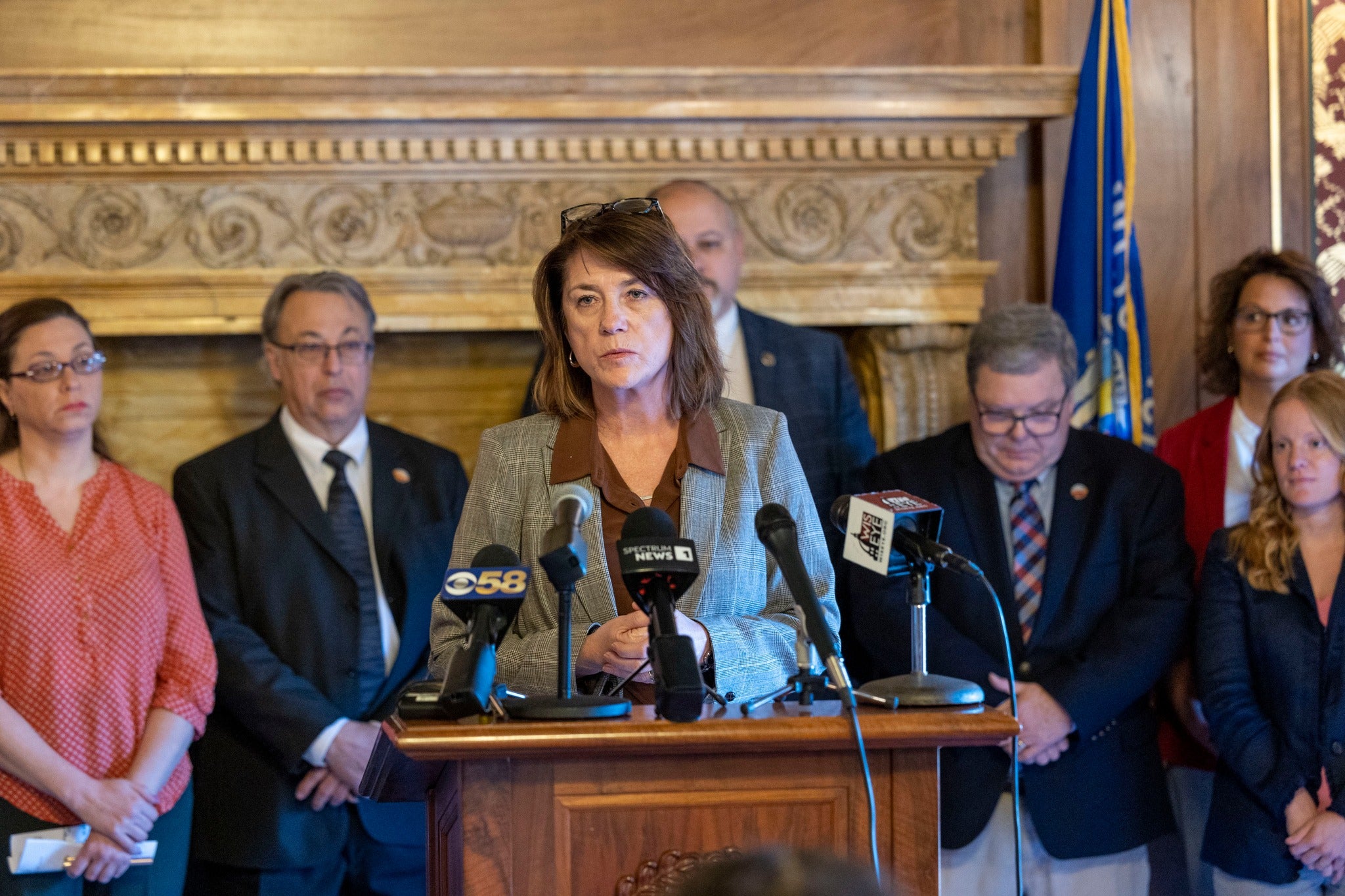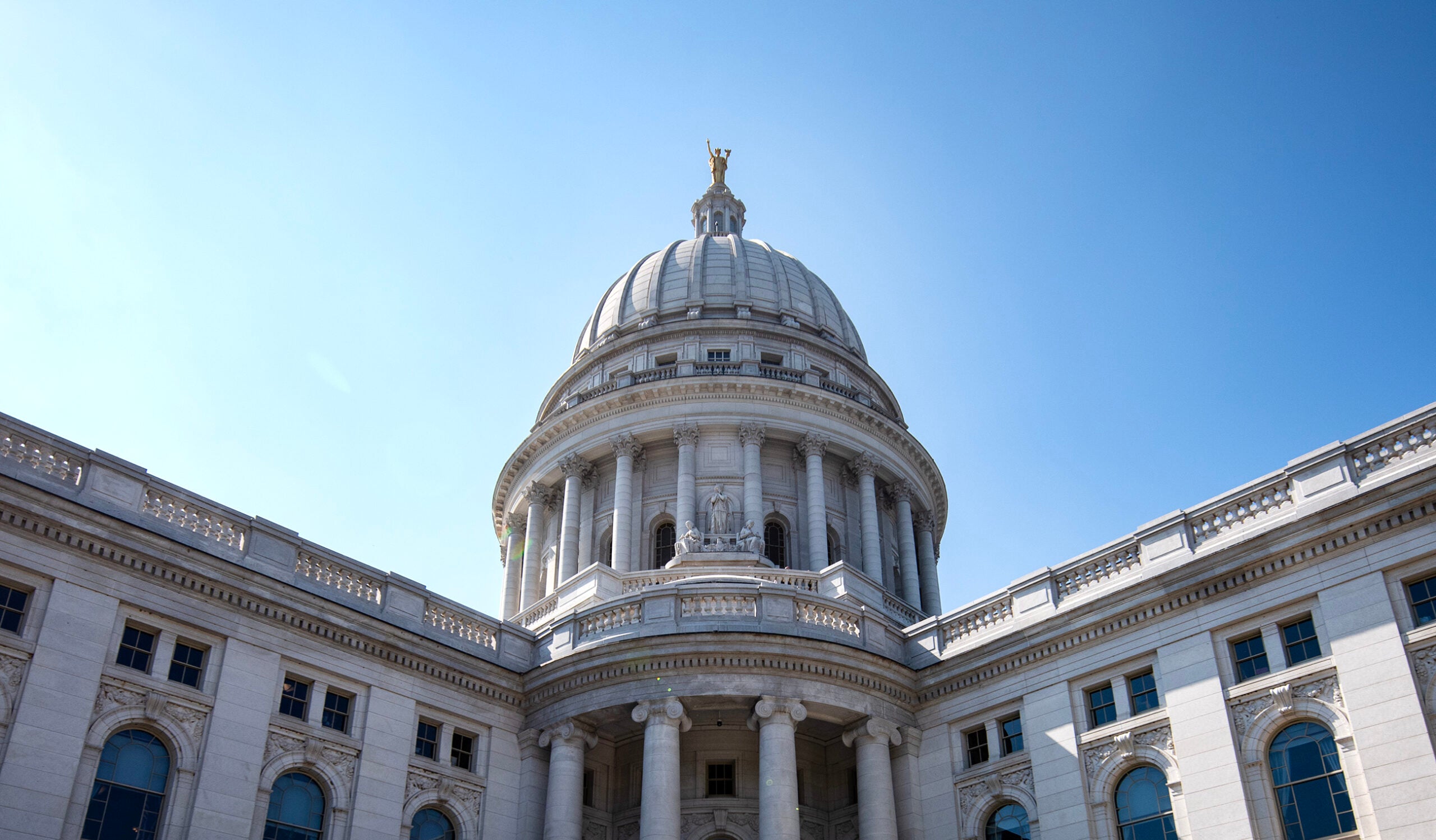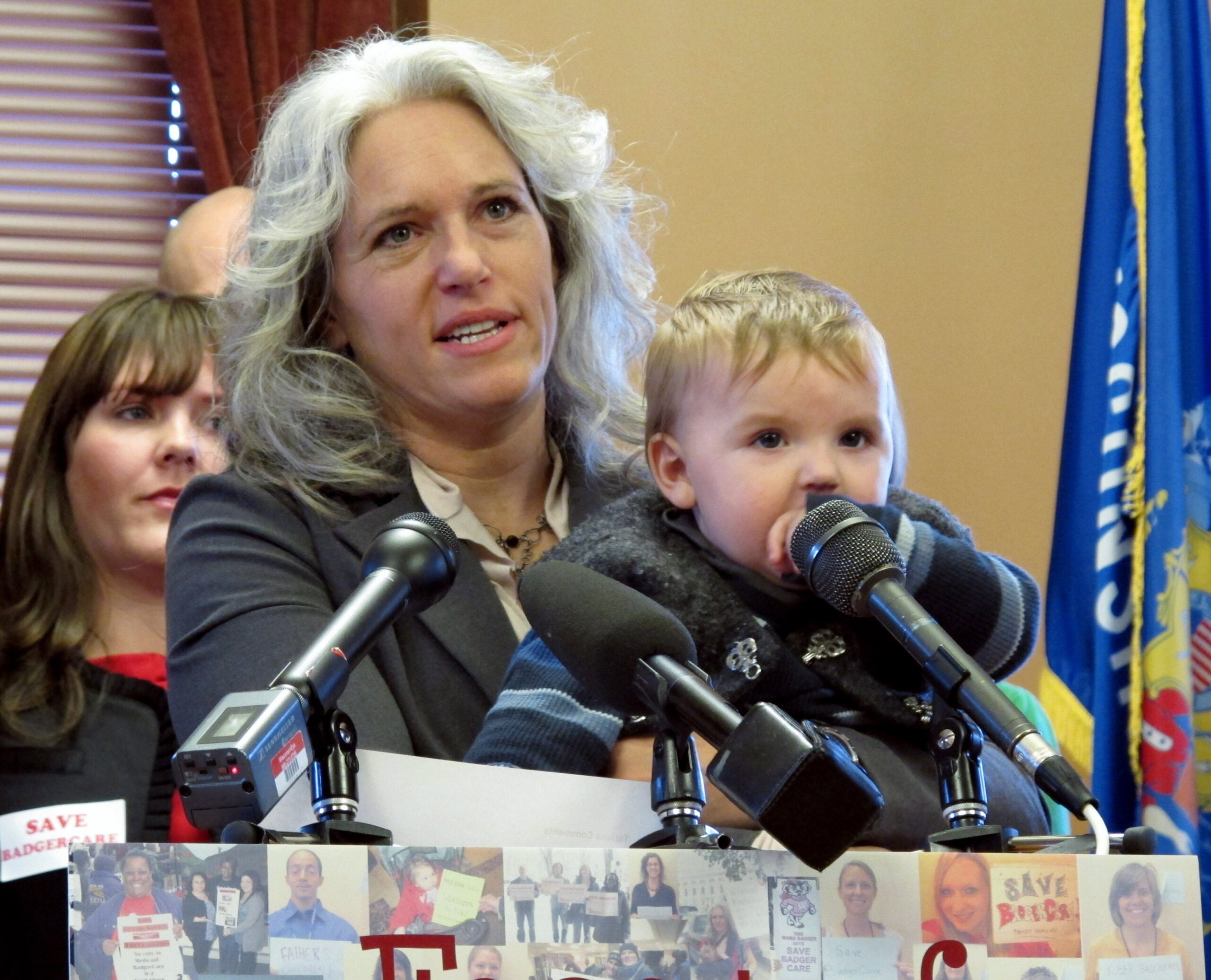The newly appointed head of the Wisconsin Department of Health Services says accepting federal Medicaid expansion funds is vital to increasing reimbursement rates to health care providers and addressing a skilled health care worker shortage in the state.
DHS Secretary Andrea Palm toured Dove Healthcare in Eau Claire on Thursday, which operates 11 nursing homes and rehabilitation facilities around the region.
She said her team and Gov. Tony Evers have drafted a budget that aims to spend more on mental health, dental and long-term care by shifting state dollars that would be freed up by accepting the federal Affordable Care Act funds.
News with a little more humanity
WPR’s “Wisconsin Today” newsletter keeps you connected to the state you love without feeling overwhelmed. No paywall. No agenda. No corporate filter.
“Medicaid expansion is absolutely the anchor of the DHS budget,” Palm said. “The $324 million in savings, plus additional federal money that we draw down, are what funds the investments that we make in the rest of the health care system for the good and health and well-being of every Wisconsinite.”
Palm and Evers have said Medicaid expansion would cover 82,000 additional residents that don’t currently qualify for the subsidized health care program.
.@DHSWI Secretary-designee Palm and I won’t let Wisconsin fall behind. We’re committed to expanding Medicaid so our citizens can get the best healthcare possible. https://t.co/bGDjAQje1b
— Governor Tony Evers (@GovEvers) March 14, 2019
Former Republican Gov. Scott Walker refused to expand Medicare through the ACA and set income levels for the state Medicaid program, known as BadgerCare, at 100 percent of the federal poverty level. The level is currently $12,140 for individuals and $25,100 for a family of four.
Evers’ planned Medicaid expansion would increase income eligibility to 133 percent of the federal poverty level.
Evers’ state budget proposal for DHS hinges on a “healthy communities” initiative that would provide $365 million to hospitals that serve Medicaid recipients, more than $40 million for increased access to dental care, $69 million to non-institutional mental and behavioral health services. The DHS budget also eliminates work requirements for childless adults that get state health benefits.
Republican leaders in the state Assembly and state Senate have said they will not support a Medicaid expansion and have cited a conservative study that claims Medicaid expansion will increase costs for the state.
Evers predicted in January that he would prevail in the debate over accepting federal Medicaid expansion dollars. He has since been making the case at speaking events around the state.
Palm said she’s looking forward to working with GOP lawmakers on the plan.
“We are very anxious to have a conversation with the Legislature about those investments, and I think it’s a new day,” said Palm. “There’s a new opportunity here to have a fresh conversation and I’m committed and the governor is committed to engaging in that conversation and really highlighting how the proposals, the investments that we are proposing, actually get at the concerns we are hearing from around the state.”
Requests for comment emailed to the offices of Assembly Speaker Robin Vos, R-Rochester, and state Senate Majority Leader Scott Fitzgerald, R-Juneau, weren’t returned. Vos tweeted about the standoff Thursday afternoon.
#nevergoingtohappen. We will not expand welfare and increase the cost of private health insurance. Just like so many of the items in the budget, it’s a shell game to expand welfare and make more people dependent on the government. https://t.co/B35Tn5lRhi
— Robin Vos (@repvos) March 14, 2019
State Sen. Jeff Smith, D-Eau Claire, toured Dove Healthcare with Palm. He said the healthy communities investments proposed by Evers and Palm “need to happen” and left it to Republican lawmakers to figure out how to fund them if they refuse Medicaid expansion.
“I want to hear what the Republicans have to offer if they don’t want to take our tax dollars from the federal government to bring back into Wisconsin how they’re going to replace that money to make sure we do the right thing in the state of Wisconsin,” Smith said.
Dove Healthcare-West administrator Kendall Rosemeyer said increasing Medicaid reimbursement rates for facilities like hers would help boost wages for skilled nursing staff. She said currently wages are higher at Kwik Trip gas stations and Culver’s restaurants.
“We aren’t able to compete with that and that’s definitely a big challenge,” said Rosemeyer. “We can get people into the program to become a CNA and once they become a CNA, they realize real quickly that they can no longer sustain taking care of their family or paying to continue to be a CNA in long-term care.”
Evers’ budget also calls for increasing the state’s minimum wage incrementally. Rosemeyer said that would help her employees, but could put a financial strain on Dove unless reimbursement rates were increased as well.
“The minimum wage thing is a little bit scary just for the fact that finding a way to support that with facilities that are underfunded would be challenging, but of course, I love what that would do for the people who work for us because what they do is amazing,” said Rosemeyer.
Wisconsin Public Radio, © Copyright 2026, Board of Regents of the University of Wisconsin System and Wisconsin Educational Communications Board.

